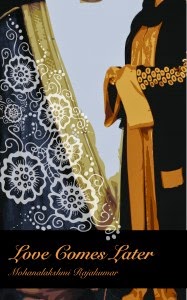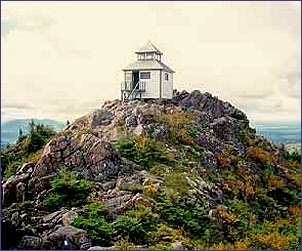 Mohanalakshmi
Rajakumar is a South Asian American who has lived in Qatar since 2005. Moving
to the Arabian Desert was fortuitous in many ways since this is where she met
her husband, had two sons, and became a writer. She has since published eight
e-books, including a momoir for first time mothers, Mommy But Still Me;
a guide for aspiring writers, So You Want to Sell a Million Copies; a
short story collection, Coloured and Other Stories; and a novel about
women’s friendships, Saving Peace.
Mohanalakshmi
Rajakumar is a South Asian American who has lived in Qatar since 2005. Moving
to the Arabian Desert was fortuitous in many ways since this is where she met
her husband, had two sons, and became a writer. She has since published eight
e-books, including a momoir for first time mothers, Mommy But Still Me;
a guide for aspiring writers, So You Want to Sell a Million Copies; a
short story collection, Coloured and Other Stories; and a novel about
women’s friendships, Saving Peace.
Her
coming of age novel, An Unlikely Goddess,
won the SheWrites New Novelist competition in 2011.
Her
recent books have focused on various aspects of life in Qatar. From Dunes to
Dior, named as a Best Indie book
in 2013, is a collection of essays related to her experiences as a
female South Asian American living in the Arabian Gulf. Love Comes Later was the winner of the Best Indie Book Award for
Romance in 2013 and is a literary romance set in Qatar and London. The Dohmestics is an inside look into
compound life, the day-to-day dynamics between housemaids and their employers.
After
she joined the e-book revolution, Mohana dreams in plotlines. Learn more about
her work on her website at www.mohadoha.com
or follow her latest on Twitter: @moha_doha.
Love Comes Later
Prologue
Abdulla’s mind wasn’t on Fatima, or on his
uncles or cousins. Not even when he drove through the wrought iron entry gate,
oblivious to the sprawl of family cars parked haphazardly in the shared courtyard,
did he give them a thought. Despite the holy season, his mind was still hard at
work. Mentally, he clicked through a final checklist for tomorrow’s meetings. I can squeeze in a few more hours if Fatima
is nauseous and sleeps in tomorrow, he thought, rubbing his chin. Instead
of the stubble he had anticipated, his whiskers were turning soft. A trim was
yet another thing he didn’t have time for these days, though longer beards were
out of fashion according to his younger brother Saad, who had been trying to
grow one for years. Beard length. Just another change to keep up with.
Change was all around him, Abdulla thought. The cousins getting older, he himself soon to become
a father. Abdulla felt the rise of his
country’s profile most immediately in the ballooning volume of requests by
foreign governments for new trade agreements. By the day, it seemed, Qatar’s
international status was growing, which meant more discussions, more meetings.
He slid the car into a gap in the growing
shadow between his father’s and grandfather’s houses. It would have to serve as
a parking space. The Range Rover door clicked shut behind him as he walked
briskly toward his father’s house, BlackBerry in hand, scrolling through his
messages. Only then did the sound of wailing reach him, women in pain or grief,
emanating from his Uncle Ahmed’s house across the courtyard. He jerked the
hands-free device out of his ear and quickened his pace, jogging not toward the
majlis where the rest of the men were gathering, but into the main
living area of Uncle Ahmed’s, straight toward those unearthly sounds.
The sight of Aunt Wadha stopped him short.
Disheveled, her shayla slipping as she howled, she was smacking herself
on the forehead. Then came his mother, reaching her arms out to him with a
tender, pitying look he hadn’t seen since his pet rabbits from the souq
died. But it was Hessa, his other aunt – Fatima’s mother, his own mother-in-law
– who sent him into a panic.
Ashen-faced, her lips bleeding, she was clutching the evil eye necklace
he had bought Fatima on their honeymoon. At the sight of it, the delicate gold
cord in Hessa’s hands and not around his wife’s neck, Abdulla felt his knees
buckle and the BlackBerry slip from his hand.
“What has happened?” he said. He looked from
one stricken face to another.
Numbly, he saw his female cousins were there.
At the sight of him the older ones, glamorous Noor and bookish Hind, both women
in their own right whom he hadn’t seen in years, jerked their shaylas
from their shoulders to cover their hair and went into the adjoining room. In
his haste, he hadn’t said “Darb!” to let them know he was entering the
room.
“Abdulla, Abdulla...” his mother began, but
was thrust aside by Aunt Hessa.
“Fatima,” Hessa screamed, staring wildly at
him. “Fatima!”
Rather than fall onto the floor in front of
the women, Abdulla slumped heavily into the nearest overstuffed armchair. Fatima...
They left behind gangly nine-year-old Luluwa,
Fatima’s sister, who resisted when they tried to take her with them. His
father, gray-faced and tired, entered. Abdulla slouched and waited, the growing
dread like something chewing at his insides. His father began to talk, but on
hearing “accident” and “the intersection at Al Waab” he remembered the Hukoomi
traffic service SMS. Then he heard “Ahmed”, and a shiver of horror ran up his
back. The driver had been Ahmed, his uncle, the father of his wife.
Later that night in the morgue, in the minutes
or hours (he couldn’t keep track) while he waited to receive her body, Abdulla
flicked his Zippo lighter open and struck it alight. Holding it just so, he
burned a small patch on his wrist just below his watchstrap. Even this couldn’t
contain his rage at the truck driver who came through without a scratch, at his
uncle, or at himself.
The morgue was antiseptic, mercilessly public.
The police advised against seeing her, insisting that he wouldn’t be able to
erase the memory of a face marked with innumerable shards of glass.
Surrounded by family and hospital staff, he
couldn’t hold her, talk to her, stroke her slightly rounding stomach, the
burial site of their unborn child. Any goodbyes he had hoped to say were
suppressed.
He would mourn the baby in secret. He hadn’t
wanted to tell relatives about the pregnancy too soon in case of a miscarriage.
Now it could never happen: the need to visibly accept God’s will in front of
them would prevent him from crying it out, this woe upon woe that was almost
too much to bear.
Fatima’s body was washed and wrapped, the
prayers said before burial. His little wife, the round face, the knowing eyes
he’d grown up next to in the family compound, and the baby he would never see
crawl, sleep, or walk were hidden to him now for all eternity. The secret she
was carrying was wrapped in a gauzy white kaffan, her grave cloth, when
he was finally allowed to see them. The child who would have been named after
Abdulla’s grandfather if a boy, his grandmother if a girl, whose gender would
now remain a mystery.
At the burial site, as was customary, he fell
in line behind his father and uncles. Ahmed, the father, carried his daughter’s
slight form.
They placed her on her right side.
Men came to lay the concrete slabs that sealed
the grave, so her frame would not rise up as it decomposed in the earth.
Abdulla regretted not stroking the softness of her chin or the imperceptibly
rounding curve of her belly. I am burying my wife and our unborn child,
he thought, the taste of blood filling his mouth from the force with which he
bit his cheek to stem the tears. Their secret would be lost within her lifeless
womb. News of a double tragedy would spread with the sand under doors and into
the ears of their larger circle of acquaintances. Someone would call someone to
read the Qur‘an over him. Someone would search out someone else for a bottle of
Zamzam water from Mecca.
None of it would stop the acid from chewing
through his heart.
Loves Comes Later is available at amazon.com where it has received 36 five star and 38 four star reviews. An exceptional novel of love in mixed cultures.Thank you Mohana for sharing the beginning of your novel.
Next week you will be able to read my short story, Reaching the Pinnacle. Jeb Davis and his granddaughter plan an overnight camping trip. They hike to the top of Mount Carleton. Sitting around the campfire, the young lady tells her Grampy what is on her heart.










%209781625105554large.jpg)
